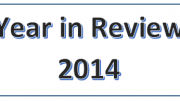By Jeffrey A. Roberts
CFOIC Executive Director
A judge Monday ordered Denver to disclose city officials’ text messages about last June’s severe hailstorm at Red Rocks Amphitheater, ruling the communications were improperly withheld from 9NEWS reporter Steve Staeger.
City attorneys contended that cellphone texts sent and received by Red Rocks director Tad Bowman and Ginger White Brunetti, the now-former executive director of Denver Arts & Venues, did not fit the definition of “public records” in the Colorado Open Records Act because the messages were not “made, maintained or kept” by the city.

But Denver District Court Judge Stephanie Scoville said the “plain language” of CORA is broad enough to encompass text messages between city employees that concern city business. She cited testimony from Bowman that he received status updates via text from other employees the evening of June 21, when concertgoers were pummeled by the storm, “and that is sufficient to make it a public record under CORA.”
Scoville’s decision isn’t the first district court ruling in Colorado to interpret CORA as including text messages that concern public business, but it is believed to be the first such ruling about the text messages of Denver employees and officials.
“This seemed like a very clear-cut issue,” said media attorney Steve Zansberg, who sued the city on Staeger’s behalf in September. “I’ve never understood the city’s arguments, and I’m glad the court agreed with us. If the court hadn’t then it would have sent a green light to every government office in the state to conduct all of their public business by text message. And that would be absurd.”
During a late afternoon hearing and in a court brief, Mitch Behr and Ed Gorman of the city attorney’s office argued that messages sent and received via mobile devices are “personal to the sender/receiver” and akin to the Montrose County manger’s personal diary, which the Colorado Supreme Court in 2003 held was not a public record.
Employee text messages do not exist on any citywide system, only on individual devices, and city policy does not require employees to retain text messages or make them available to other city agencies or employees “for future use,” Behr said. State lawmakers, he also noted, have declined to explicitly include text messages in CORA’s definition of electronic mail.
But Scoville, ruling from the bench, said text messages are “very different” from the diary at the center of the case reviewed by the Supreme Court in 2003. “A diary is someone’s personal papers where the notes reflect thoughts and ideas for personal reflection or recollection, and here we have communications.”
Scoville said “electronic mail” and “correspondence” are defined broadly in the open records law, which also defines “public record” to broadly mean any “writings” that are “made, maintained or kept” by a political subdivision “for use in the exercise of functions required or authorized by law or administrative rule.”
“Text messages … certainly could fall within writings that are made for use in the exercise of functions required or authorized by law,” the judge added.
In a court filing, Denver stipulated that Brunetti and Bowman on June 21 and 22 “exchanged text messages, including with other City employees, regarding the hailstorm and events at Red Rocks.” Brunetti, who left her position in September, used a cellphone she owned “and for which she received a monthly stipend from the City.” Bowman used a cellphone “that was provided to him by the City.”
Zansberg, who is president of the Colorado Freedom of Information Coalition, argued that the city’s decision not to collect text messages from officials and employees doesn’t make them off-limits to the public. Brunetti and Bowman, he said, “were the custodians who we sued who were required under the open records act to produce records, whether or not (the messages) were transferred to the city.”
It is the content of the messages that determines whether they are public records, Zansberg said, citing a 2005 Colorado Supreme Court ruling that if both public and purely private matters were discussed in the same messages, they should be redacted to exclude the private information before being provided to the records requester.
In a court brief, Zansberg noted that numerous other government entities around Colorado and district courts in Eagle County and Larimer County have construed CORA’s definition of public records to include text messages on cellphones, provided that the content of the messages concerns public business.
He noted that the Office of Legislative Legal Services advises members of the General Assembly to consider “all communications to be potentially releasable, including records kept on a personally owned, private device.” The state House of Representatives, he added, recently agreed to make all electronic messages between members that concern public business available for inspection under CORA.
The June 21 Red Rocks concert featured Louis Tomlinson, formerly of the group One Direction. According to Denverite, “Attendees squeezed into limited shelter from the storms. People broke bones, suffered head injuries and tripped over hail. They stumbled back from the venue to pummeled cars, only to be stuck in traffic, looking through broken windshields. Some were taken to the hospital.”
Follow the Colorado Freedom of Information Coalition on Twitter @CoFOIC. Like CFOIC’s Facebook page. Do you appreciate the information and resources provided by CFOIC? Please consider making a tax-deductible donation.




